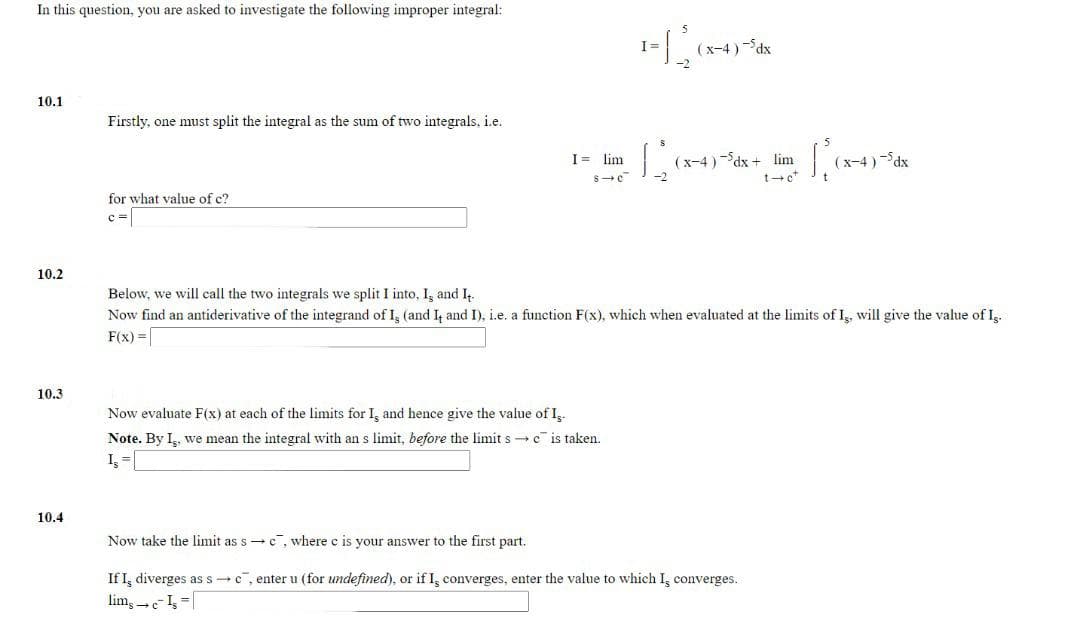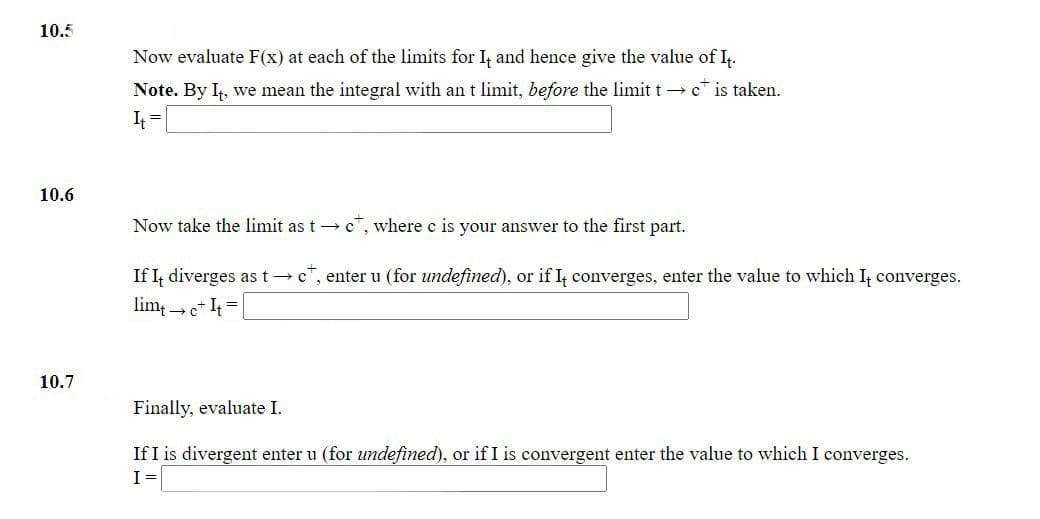In this question, you are asked to investigate the following improper integral: XPs- 10.1 Firstly, one must split the integral as the sum of two integrals, i.e. I= lim (x-4)-dx+ lim (x-4)dx for what value of c? c= 10.2 Below, we will call the two integrals we split I into, I, and I. Now find an antiderivative of the integrand of I, (and I and I), i.e. a function F(x), which when evaluated at the limits of I, will give the value of I- F(x) =| 10.3 Now evaluate F(x) at each of the limits for I, and hence give the value of I. Note. By I, we mean the integral with an s limit, before the limit sc is taken. I =
Correlation
Correlation defines a relationship between two independent variables. It tells the degree to which variables move in relation to each other. When two sets of data are related to each other, there is a correlation between them.
Linear Correlation
A correlation is used to determine the relationships between numerical and categorical variables. In other words, it is an indicator of how things are connected to one another. The correlation analysis is the study of how variables are related.
Regression Analysis
Regression analysis is a statistical method in which it estimates the relationship between a dependent variable and one or more independent variable. In simple terms dependent variable is called as outcome variable and independent variable is called as predictors. Regression analysis is one of the methods to find the trends in data. The independent variable used in Regression analysis is named Predictor variable. It offers data of an associated dependent variable regarding a particular outcome.
need an answer for this


Step by step
Solved in 2 steps with 1 images









